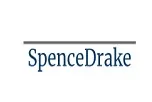In Mediclean Incorporated v. The Queen, 2022 TCC 37 (CanLII), the Tax Court of Canada provides guidance for successfully claiming the "tax paid in error" GST/HST rebate and reiterates the scope of prescribed information for claiming Input Tax Credits.
In general, when a business pays for an expense (e.g., business start-up costs, rent, professional fees) they also pay GST/HST on that expense. Subsequently, they can apply for Input Tax Credits (ITC) to recover the GST/HST paid. However, upon review/audit, Canada Revenue Agency (CRA) is relatively strict concerning the information and documents required to support ITCs claimed.
The issues of denied ITCs and GST/HST rebates were recently considered in the Tax Court of Canada case of Mediclean Incorporated v. The Queen, 2022 TCC 37 (CanLII). CRA audited Mediclean Incorporated (the "Appellant"), a company that paid independent contractors (subcontractors) to provide cleaning services. The Appellant's workers had been ruled to be subcontractors, versus employees, in the earlier decision of Mediclean Incorporated v. M.N.R., 2009 TCC 340 (CanLII)).
Of particular interest was the Appellant's position that if CRA denied the ITCs then it was entitled to a rebate of the GST/HST "paid in error" per subsection 261(1) of the Excise Tax Act, RSC 1985, c E-15 (ETA) or to apply the rebate amount to net tax owing per subsection 296(2.1).
GST/HST - Input Tax Credits - ITC
According to the facts outlined in the Mediclean decision, the Appellant paid GST/HST on its payments to the subcontractors. In turn, the Appellant claimed ITCs to recover the GST/HST. The Appellant and subcontractors also entered into written subcontractor agreements and payments were processed and tracked by a third-party company. However, the subcontractors did not register for GST/HST with CRA.
At audit, CRA denied the ITCs and applied financial penalties pursuant to section 285 of the ETA. Because ITCs are refundable, ETA section 169 mandates that the claimant obtain "sufficient evidence in such form containing such information as will enable the amount of the input tax credit to be determined". The respective regulations outline the specific information required to support the claimed ITC, including the name of the GST/HST payor, the payees names, the terms of the payment and a description of the supply.
In Mediclean, CRA argued that the Appellant did not provide the prescribed information sufficient to support approximately $770,000 in ITCs. Importantly, the Appellant had failed to record the GST/HST registration numbers from the subcontractors. The Respondent relied upon three decisions in support of the denial of the rebate and ITCs: Systematix Technology Consultants Inc. v. The Queen, 2006 TCC 277 (CanLII) ("Systematix"), affirmed by the Federal Court of Appeal in Systematix Technology Consultants Inc. v. Canada, 2007 FCA 226 (CanLII) and SNF L.P. v. The Queen, 2016 TCC 12 (CanLII) ("SNF"). Referencing these decisions, the Respondent insisted that the Appellant was required to collect GST/HST registration numbers from the subcontractors. Further, it was argued that the Systematix decision made it clear that the GST/HST regime should not be applied flexibly, even in case of inequitable outcomes.
According to the Respondent, per the decision in SNF, the Appellant's noncompliance with the section 169 prescribed information requirements was misrepresentation "attributable to neglect, carelessness or wilful default." The Appellant was either willfully blind to the issue concerning the application of GST/HST to the payments made to unregistered subcontractors or was grossly negligent in failing to properly consider the issue.
The Appellant countered that the "standard of behaviour expected of taxpayers in filing returns is that of a wise and prudent person, the standard is not one of perfection." In support of this position the Appellant cited The Queen v. Regina Shoppers Mall Ltd., 91 DTC 5101, Salloum v. The Queen, 2014 TCC 366 (CanLII), affirmed by the Federal Court of Appeal in Salloum v. Canada, 2016 FCA 85 (CanLII). Ultimately, the lack of subcontractor GST/HST registration numbers resulted in the Tax Court's denial of the respective ITC claim.
REBATE of "tax paid in error"
A related primary issue was whether, upon denial of the ITCs, the Appellant was entitled to a rebate of the GST/HST paid to the subcontractors. Pursuant to subsection 261(1) of the ETA, a taxpayer can apply for a rebate of GST/HST if the amount was paid in error or overpaid. An allowed rebate can be applied to reduce net tax owing per subsection 296(2.1).
The Respondent contended that the subsection 216(1) rebate was not available to a taxpayer where it was determined that the amount paid was on account of "a mistake resulting from the Appellant's negligence, or inattention and carelessness", in part due to the failure to obtain GST/HST numbers from the subcontractors.
The Tax Court rejected this assertion, pointing out the fact that subsection 261(1) states that a rebate is permitted "whether the amount was paid by mistake or otherwise". The court decided it could not add the limitation that the taxpayer provide the reason for the mistake as it is not implicit to the broadly worded provision, suggested by the use of the word "otherwise". Accordingly, the Tax Court ruled in favor of the rebate.
Finally, the GST/HST rebate application must be made, per subsection 261(3) of the ETA, within two years of payment or remittance. The two-year period had passed, however, per subsection 296(2.1) the rebate is deductible if it would have been allowed if claimed within the allotted time period. The Respondent argued that 296(2.1) did not apply because the rebate claim was not allowable even if applied for on time. The Tax Court rejected this argument and ruled in favour of the Appellant.
This article was first published by The Lawyer's Daily on April 4, 2022
The content of this article is intended to provide a general guide to the subject matter. Specialist advice should be sought about your specific circumstances.

